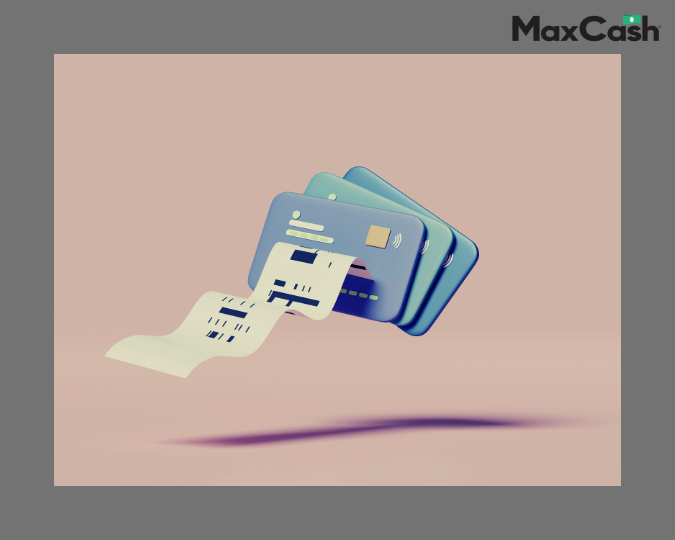Credit Cards vs. Debit Cards
Credit and debit cards are two popular payment methods that allow individuals to make purchases and access cash without carrying physical currency. While these two types of cards may seem similar, there are several key differences between credit and debit cards that are important to understand. Max Cash® explains it all so that you get the answers you need.
First, let’s define each type of card:
A credit card is a type of payment card that allows you to borrow money from a financial institution to make purchases or withdraw cash. When you make a purchase with a credit card, you are borrowing money from the credit card company, and you will need to pay back the borrowed amount plus interest. Credit cards usually have a credit limit, which is the maximum amount that you can borrow at any given time.
A debit card, on the other hand, directly links to a checking or savings account at a financial institution. They allow the cardholder to access the funds in that account to make purchases or withdraw cash. When the cardholder makes a purchase with a debit card, the money transfers immediately from their bank account to the merchant. Debit cards do not allow you to borrow money like credit cards do, and you can only spend the money that is available in your account. Debit cards do not have credit limits.
What are some key differences between credit and debit cards
The main difference between credit cards and debit cards is that credit cards allow you to borrow money from a financial institution, while debit cards allow you to spend money that you already have in your account. Here are some further key differences between the two:
- Interest and fees: One of the main differences between credit and debit cards is the way they charge interest and fees. Credit cards often come with higher interest rates and fees, including annual fees, late payment fees, and balance transfer fees. Debit cards, on the other hand, do not charge interest because they do not allow the cardholder to borrow money.
- Credit score: Another key difference between credit and debit cards is the impact they have on a person’s credit score. Credit cards allow the cardholder to build a credit history by making regular, on-time payments. This can help to improve the cardholder’s credit score, which is a measure of their creditworthiness and financial responsibility. Debit cards do not affect a person’s credit score because they do not involve borrowing money.
- Rewards programs: Credit cards often come with rewards programs that allow cardholders to earn points, cash back, or other benefits for making purchases with their card. Debit cards, on the other hand, typically do not offer rewards programs.
The Importance of Fraud Protection
Credit and debit cards also offer different levels of fraud protection. Credit cards are generally more secure than debit cards. They do not allow direct access to the cardholder’s bank account. If a credit card is lost or stolen, the cardholder can report the loss to the issuer. They can also request a new card in the meantime. Typically, the cardholder will not lose any money for any purchases made. Debit cards, on the other hand, offer less protection against fraud because they are directly linked to the cardholder’s bank account. If a debit card is lost or stolen, the cardholder may be responsible for any losses. This is because unauthorized charges or withdrawals made on the card come directly from their account.
Credit cards generally offer more protection against fraud than debit cards. If your credit card is lost or stolen, you can report it to the issuer. Then your liability for unauthorized charges is typically limited to $50 or less. With a debit card, if your card is lost or stolen and someone uses it to make purchases or withdraw cash, the money will be taken directly out of your account. It may take longer to get the money back. You may be unable to access it in the meantime.
Credit and debit cards are both convenient payment methods. They allow individuals to make purchases and access cash without carrying physical currency. However, there are several key differences between these two types of cards. The way they charge interest and fees, impact on a person’s credit score, level of fraud protection, and rewards programs. Understanding these differences can help consumers make informed decisions about which type of card is right for their needs.
When Should I Use Credit Vs. Debit?
Consider a few different factors to before deciding whether to use a credit or a debit card for a purchase. Here are a few things to think about:
- Rewards: Many credit cards offer rewards for using the card, such as cash back, points, or miles. If you use a credit card to make purchases and pay off the balance in full each month, you can earn rewards that can be redeemed for things like travel, merchandise, or statement credits. Debit cards generally do not offer rewards.
- Building credit: Using a credit card responsibly, such as by paying your balance in full each month and not exceeding your credit limit, can help you build a good credit history and credit score. This can make it easier for you to get approved for loans or credit in the future. Using a debit card does not help you build credit.
- Convenience: Credit cards are accepted at a wider range of merchants than debit cards. This can be especially useful when traveling or making an online purchase from a merchant that you are not familiar with.
Whether to use a credit card or a debit card will depend on your individual financial situation and goals. Use a credit card for purchases that you can pay off in full each month. Then use a debit card for everyday expenses that you can pay for with the money already in your account.
Max Cash Can Get You A New Card Today!
Max Cash is always finding new partners and new ways to get you the money you need. We have four credit card offers available right now. Some are pre-approved and won’t impact your credit score if you apply. So click here right now to find the perfect new card for you!




